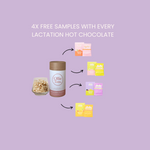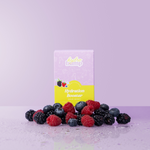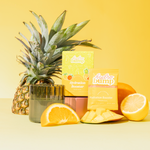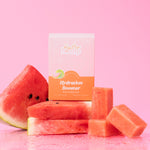The journey of motherhood is a miraculous experience that begins in the delivery room and extends into the everyday challenges of raising a newborn. One essential but often overlooked aspect of postnatal care is hydration. Ensuring optimal hydration is vital not only for recovery but for the overall health and well-being of new mothers and their babies.
This article delves into the significance of hydration, providing evidence-based insights and practical tips for new mums.
The Importance of Hydration for New Mums
Hydration plays a critical role in the recovery process post-delivery. According to the National Academy of Medicine, lactating women need approximately 3.1 liters of fluids daily. Proper hydration aids in the production of breast milk, controls energy levels, and facilitates bodily functions.
| Stage | Recommended Fluid Intake |
| Normal intake for women | 2.1 liters/day |
| Lactating women | 2.6 liters/day |
Changes in Fluid Needs: Post-Pregnancy and Breastfeeding
During pregnancy, a woman's blood volume increases by approximately 45%. This increase requires additional fluids to support bodily functions. Post-delivery, however, when breastfeeding, the body's demands shift, as breast milk comprises nearly 87% water. Hydrating sufficiently becomes imperative to meet these increased demands.
Recognizing Dehydration: Symptoms and Risks
Identifying the signs of dehydration is crucial for new mothers. Symptoms may include dizziness, fatigue, dark urine, and dry skin. Prolonged dehydration can lead to severe complications, such as urinary tract infections and decreased milk production. Being attentive to these indicators can prevent health issues and promote recovery.
Practical Hydration Tips: Incorporating in Daily Routine
Creating a hydration routine can be seamlessly integrated into daily activities.
-
Start the day with a glass of water.
-
Carry a bottle everywhere for easy access.
-
Include hydrating foods such as fruits and vegetables in your meals.
-
Set reminders to drink water throughout the day.
Scientific Advances: Hydration Solutions for New Mums
Hydration boosters like those offered by HydroBump are specifically formulated to meet the unique needs of new mothers. These scientifically advanced solutions provide an easy and convenient way to maintain optimal hydration levels by incorporating necessary electrolytes that aid in recovery and enhance energy levels. Research shows that adequate hydration can help reduce fatigue and improve concentration, both of which are critical during the postpartum period.
The Science behind Hydration Boosters
-
Hydration boosters, unlike typical sports beverages, contain lower amounts of sugar.
-
They include an optimal balance of key electrolytes such as sodium, and potassium, which are lost during physical exertion and therefore need to be replenished.
-
The effectiveness of these boosters is supported by numerous scientific studies. For instance, a 2017 study by the Journal of International Society of Sports Nutrition confirmed that hydration boosters outperform water in maintaining optimum hydration.
Nutritional Importance: Role of Electrolytes
Electrolytes like sodium, potassium, and magnesium replenish the body's levels, which are crucial during the postpartum period. The right balance can significantly affect nerve function, muscle performance, and water balance, making them vital for new mums. According to Mayo Clinic, getting adequate electrolytes can also prevent fatigue, constipation, and other common postpartum issues.
| Electrolyte | Role in Body | Sources |
| Sodium | Regulates fluid balance | Salt, processed foods |
| Potassium | Maintains heart and muscle function | Bananas, potatoes, lean meats |
| Magnesium | Supports nerve and muscle function, immune system | Leafy greens, nuts, seeds |
Creating a Supportive Environment: Family and Community
Encouraging family members, friends, and local community to support new mums by ensuring hydration is a key element of caregiving. According to a study by the National Institutes of Health, community-based support can encourage healthier behavior, including proper hydration. Local communities and healthcare providers should also educate about the importance of hydration and provide resources for optimal care.
Challenges in Maintaining Hydration: Obstacles Faced by New Mums
One of the most common challenges is finding time for self-care amidst the demands of a newborn. Other obstacles may include forgetfulness, lack of access to fluids regularly, and the physical limitations of recovery. Addressing these barriers with actionable strategies such as setting reminders or hydration goals, keeping a water bottle nearby, and seeking help from loved ones can help maintain proper hydration.
A Holistic Approach: Combining Hydration with Other Health Practices
While hydration is crucial, it should be part of a broader self-care strategy, particularly for new mums. This should include a balanced diet, regular physical activity (as approved by a healthcare provider), mental health practices, and adequate rest. Incorporating all these best practices offers comprehensive postnatal care and ensures a smoother transition into the demanding world of motherhood.
FAQs About Hydration for New Mums
Why is hydration important after childbirth?
Postpartum hydration is crucial because it supports the production of breast milk, aids in proper digestion, and assists in the elimination of waste products from the body. Proper hydration also improves energy levels and concentration, which are especially important for new mothers dealing with the physical and emotional demands of caring for a newborn. Staying hydrated can prevent common postpartum issues such as constipation and urinary tract infections, thus promoting quicker recovery.
How can I ensure I'm drinking enough water?
Meeting your daily hydration goals can be facilitated by setting specific, manageable targets. Start by drinking a glass of water first thing in the morning and keep a water bottle with you throughout the day. Use hydrating snacks like fruits and yogurt. Additionally, using reminders or smartphone apps can help track fluid intake. Try flavored water or natural hydration supplements like HydroBump products, which are specially designed for new mums.
What are the signs that I might be dehydrated?
Dizziness, dry mouth, dark urine, and fatigue are common indicators of dehydration. New mums should be particularly observant of these signs as they may exacerbate postpartum fatigue and affect mood and energy levels. Rapid heartbeat and headaches can be more severe symptoms requiring medical attention. Regularly monitoring these symptoms will aid in maintaining health and well-being for both mother and baby.
How do electrolytes aid in postpartum recovery?
Electrolytes such as sodium, potassium, calcium, and magnesium play a vital role in maintaining fluid balance, nerve transmission, and muscle function. In a postpartum context, they aid in replenishing mineral loss and contribute to overall energy maintenance, crucial for new mums experiencing the challenges of fatigue. Products like HydroBump are designed to address these specific needs, enhancing hydration efficiently.
Can breastfeeding affect my hydration needs?
Yes, breastfeeding significantly increases the hydration requirements of new mums due to the fluid content of breast milk, which is approximately 87% water. Failure to stay hydrated can affect milk production and overall energy levels. Ensuring proper fluid intake with a combination of water, herbal teas, hydrating foods, and specially formulated solutions like those from HydroBump can help meet these increased demands effectively.
Key Takeaways
Hydration is a vital aspect of postnatal care that should not be overlooked. From aiding in the production of breast milk to ensuring overall health, adequate hydration influences a mother's ability to recover and care for her newborn effectively. By embracing a routine that prioritizes hydration, incorporating cutting-edge solutions like HydroBump, and creating supportive community networks, new mothers can navigate the postpartum period with greater ease and confidence.











